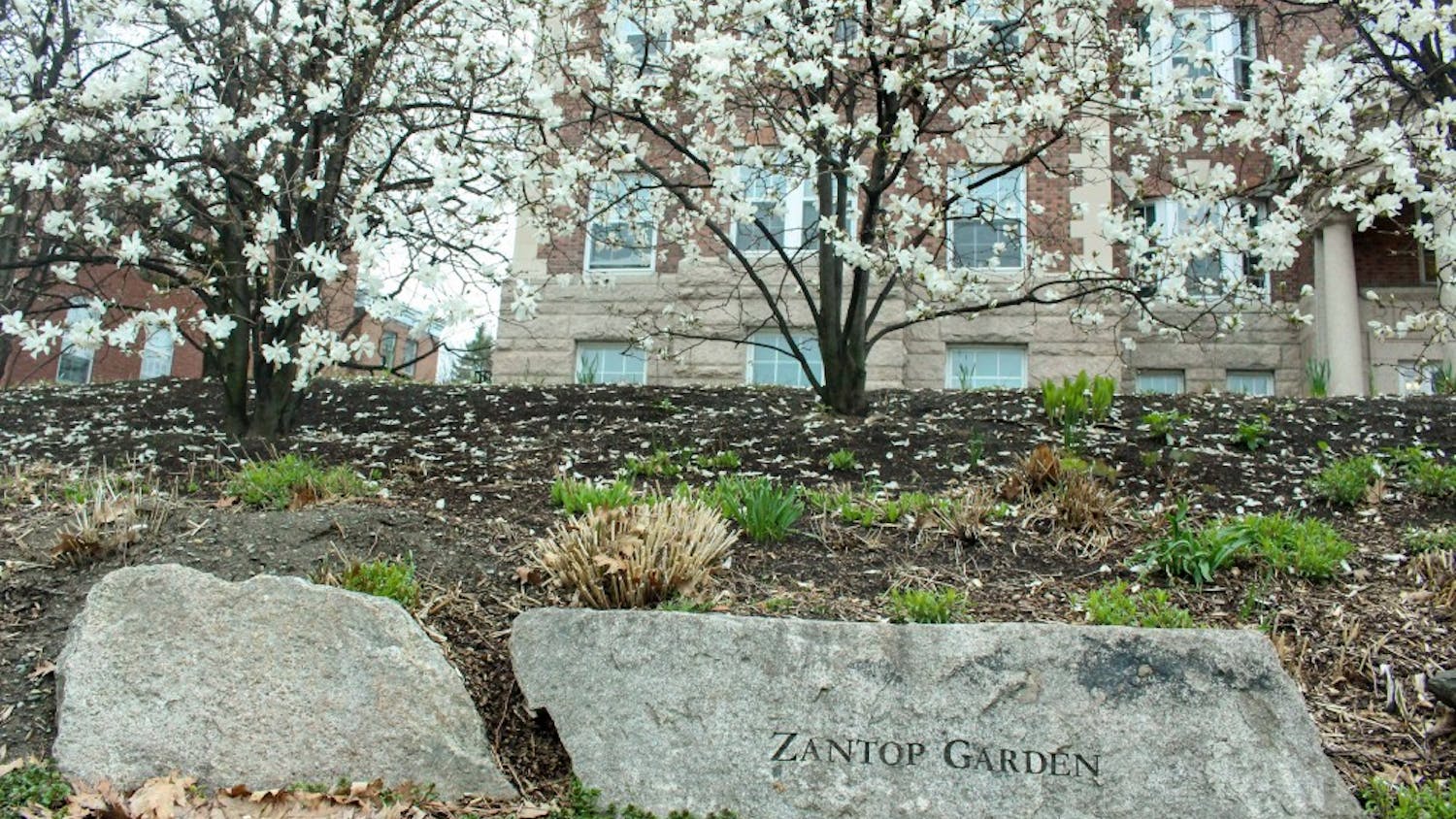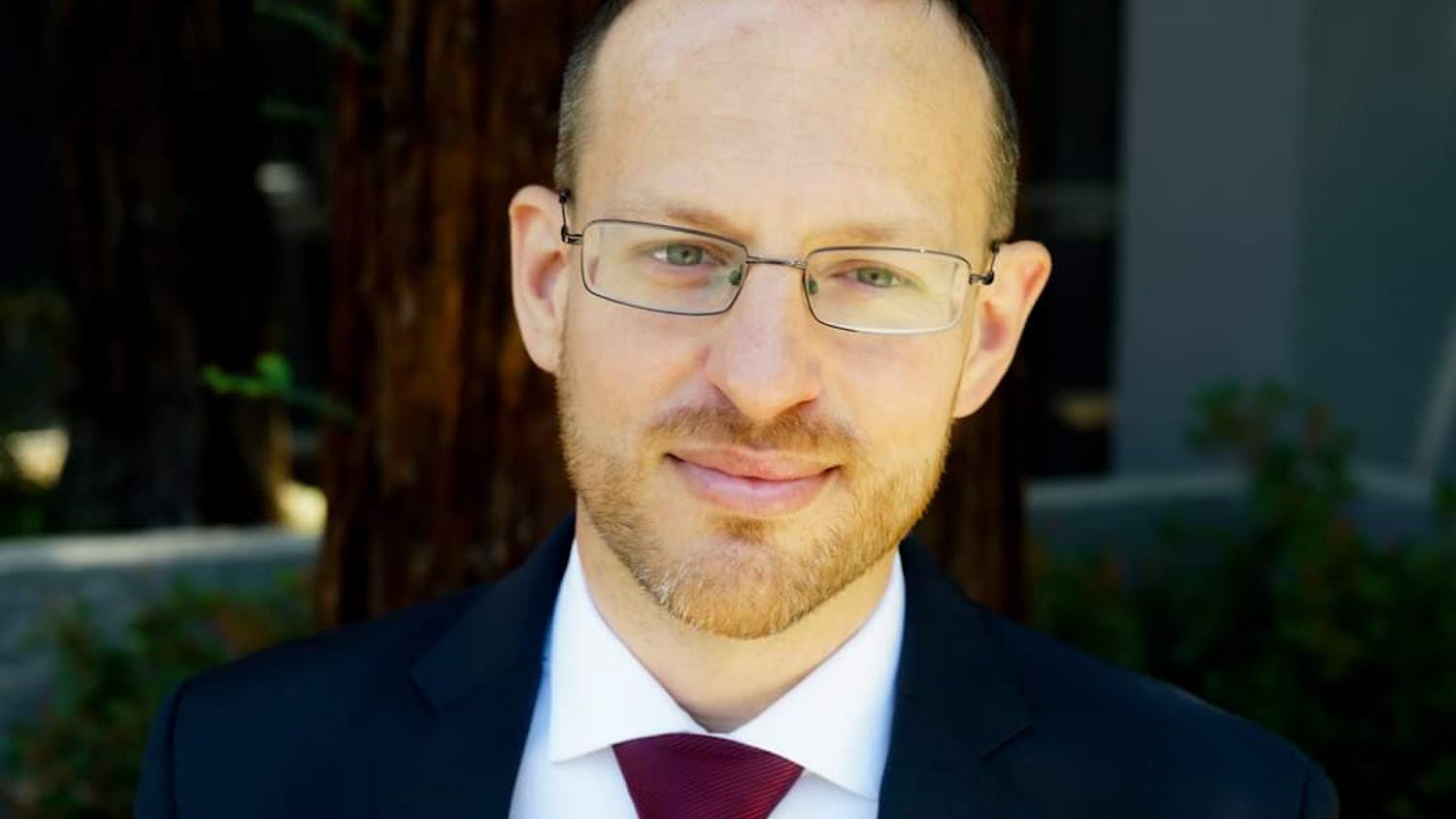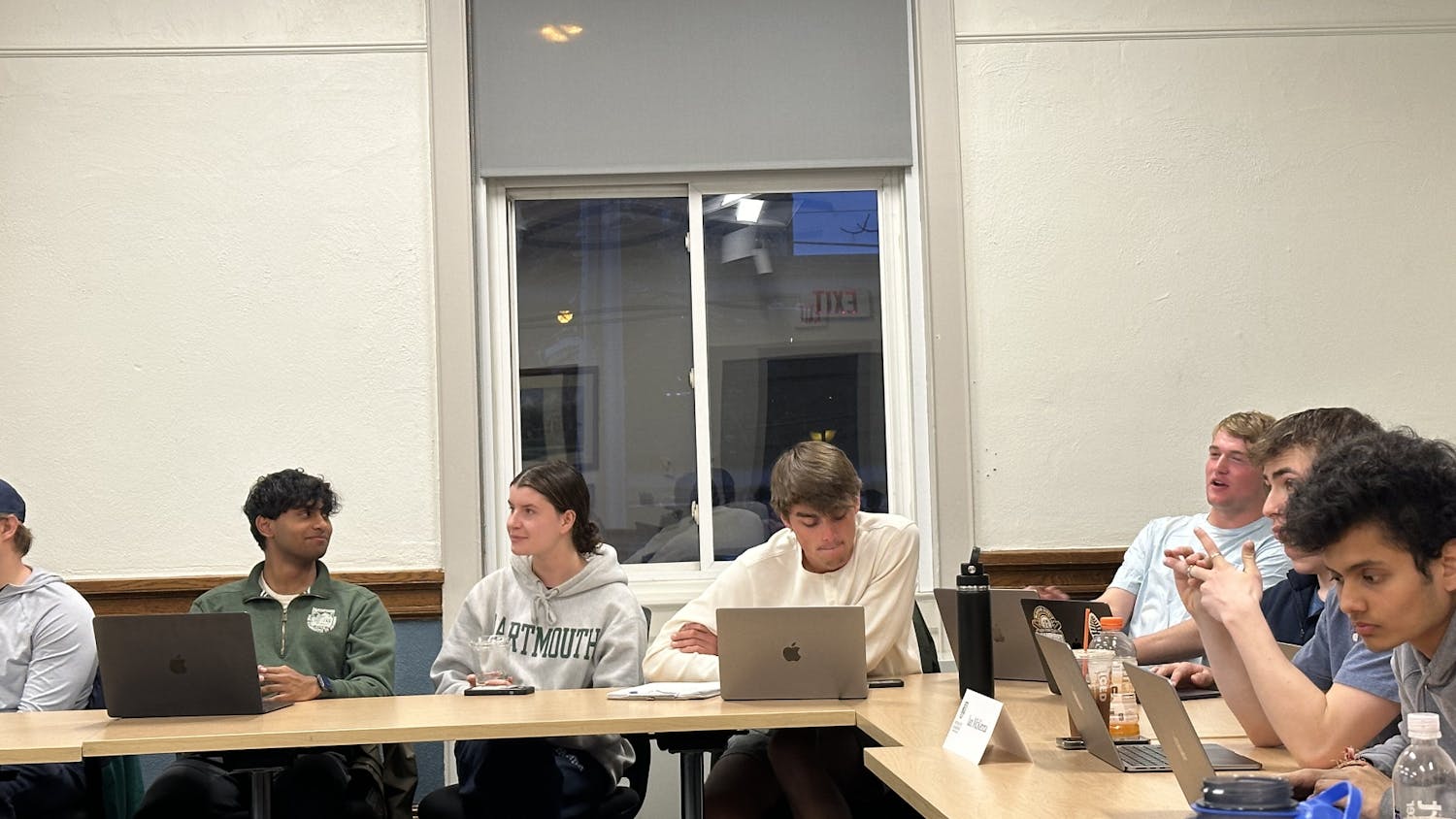In the “Moving Dartmouth Forward” external review panel’s first report, all policy initiatives were deemed “goal met,” “continuing” or “ongoing” with one exception — the creation of an online consent manual is “behind schedule.”
The panel, tasked with evaluating the College’s progress in implementing the “Moving Dartmouth Forward” policy initiative, presented its findings to the Board of Trustees on Nov. 7. The report was drafted on Sept. 29 and was shared with the public on Nov. 9.
In the report, the panel wrote that it is “too early to evaluate the plan’s impact on the campus,” and as such the report documents the progress of specific goals rather than their effectiveness.
Under the umbrella of promoting a “safer and healthier campus,” the creation of an online consent manual, which was supposed to be completed by the end of summer 2015, is behind schedule. A draft of the manual has been completed and shared with focus groups.
In the College’s implementation report available online, the consent manual is deemed to be in the “implementation phase” instead of “behind schedule.” The College's report projected that the manual be posted for community comment in Sept. 2015 and put in place fall 2015.
The panel reported that the College has met the goals of prohibiting the possession or consumption of hard alcohol on campus and creating a Dartmouth-specific safety smartphone app for students. The LiveSafe app, launched earlier this term, had been downloaded by 7 percent of the student body as of Nov. 3.
The goals to develop a four-year sexual violence prevention and education program and to increase the presence of faculty and “other positive adult influences” in the lives of students were reported to be “ongoing.” The requirement of third-party security and bartenders for social events, the increased partnership with WISE — a regional sexual and domestic violence advocacy organization — and the pilot of a Dartmouth Thrive comprehensive wellness program were reported “continuing.”
Several tasks fall under the goal to “transform residential life,” most of which are deemed “ongoing” — including finding ways to attract and support students from diverse socioeconomic backgrounds and ensuring that financial aid is available. The College has met its goal to commit $1 million per year to programming at the residential house communities. The creation of the house communities is labeled “continuing.”
Under the “clarify and strengthen expectations of individuals and student organizations” section, the panel reported that the College had met its goal to have a code of conduct in place to be signed by all students who matriculate. This fall, most matriculating members of the Class of 2019 signed the College's new freshman pledge, which is neither binding nor required.
The initiatives that student organizations eliminate pledge and probationary periods for new members, that Greek organizations have one male and one female faculty or staff sponsors and that residential student organizations undergo an annual review process are all “continuing,” the panel reported. The deadline for these tasks is the 2015-2016 academic year.
For the plan to “strengthen academic rigor while enhancing learning outside the classroom,” the panel reported that the College has allocated $1 million for experiential learning this year. Ongoing progress toward this goal includes the development of academic proposals from the Faculty Curricular Review Committee and the Committee on Instruction, as well as new “immersion” course offerings that travel during the winter interim period.
In the final section, “accountability,” the panel finds the College has met its goal of creating an external oversight committee and is continuing progress on conducting two regular climate surveys. The American Association of Universities climate survey was conducted in the spring of 2015, and results were released in Sept. 21, 2015.
The AAU survey had at 41 percent participation rate at the College. Fifty-six percent of students reported having been the victims of sexual harassment, and 13 percent of students reported having experienced attempted or completed nonconsensual sexual contact by incapacitation or physical force since matriculating at the College.
Both rates were higher than the AAU aggregate rate for the 27 participating institutions.
The College also distributed a campus-wide survey in October that closed on Nov. 3. The panel reported that the College has committed to sharing the results.
The panel is comprised of Tufts University President Emeritus Lawrence Bacow, Stanford University associate vice provost and dean of residential education Deborah Golder, the National Institute on Alcohol Abuse and Alcoholism’s director of the division of epidemiology and prevention research Ralph Hingson, former Palaeopitus Senior Society member Malcolm Leverett ’14 and Harvard Law School student Rachel Siegel ’12.



